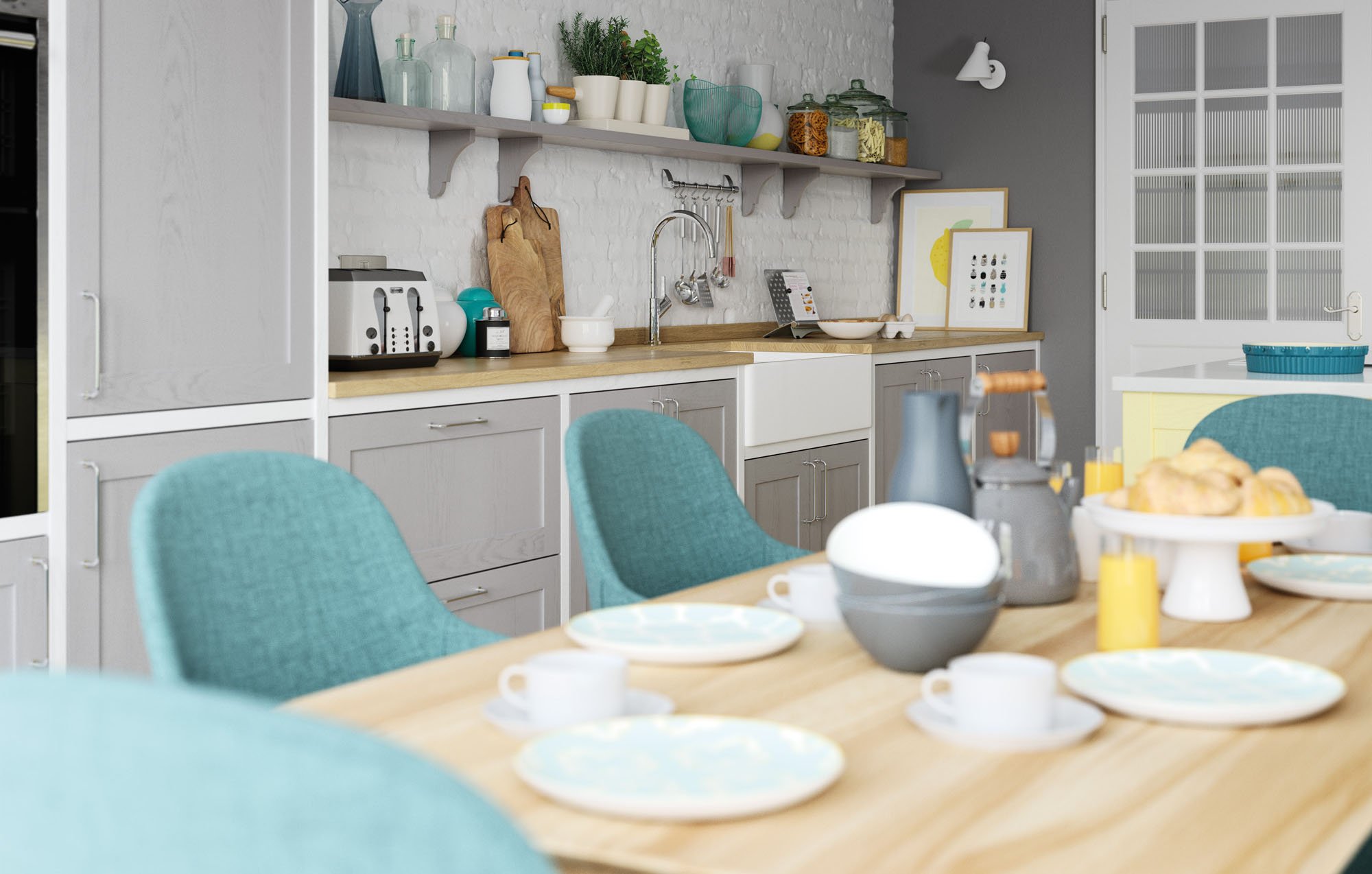
Sustainability
"“Your home is the planet. To protect the environment is to protect your own future.”"
Acting in ways that enable a life worth living here on this planet, now and into the future – that’s how we understand sustainability at Kitchenworld.
To achieve this aim, we consider every phase in the life cycle of a kitchen: from the forest where the wood is sourced, the machines used to produce the kitchen through to the point when the end customer decides that a new kitchen is needed.
Every single aspect along the way – the raw materials, supply chain, production, transport, retail, and durability – offers the potential to increase sustainability.
We are embracing this potential – through innovative ideas that have a verifiable impact.
Taking real steps to reduce our carbon footprint
-

Raw Materials
Wood is the most important material for the furniture industry – and for us. That’s why at Kitchen World we’re considerate in our use of wood as a raw material: our panels contain a high proportion of recycled material and our wood waste is used for heating.
However, we still need new wood for our furniture as well. To minimise the burden on the environment, we source our wood from sustainable forestry.
-

Supply Chain
We “think global, act local”, which is good for customers, the environment and partnerships with our suppliers. That’s because this enables short response and transport times and contributes in an enormous way to lowering CO2 emissions through reduced goods transportation.
The better the supplier, the easier and more efficient the cooperation. We conduct supplier audits that examine our suppliers’ processes and procedures and identify shortcomings.
-

Production
Energy is essential for production: machines have to be powered and people need, for example, good lighting to ensure a healthy and ergonomic workplace. Some of the electricity that we require for our business activities is obtained from renewables.
Although a great deal of waste and scrap can be avoided, there will always be a certain amount of waste. With our comprehensive disposal concept, we endeavour to collect and carefully separate the waste.
-

Transport
We’ve introduced a raft of measures to decrease our carbon footprint in transport, including partnering with Volkwagen to upgrade our transport fleet to all-electric and hybrid vehicles.
-

Retail
Kitchen studios and showrooms are our interface with the end customer. Throughout our stores, we are introducing solar panels to power the showrooms, moving to LED lighting throughout and all-electric vehicles for travelling to site visits and fittings.
-

Durability
The longer a product lasts, the less often it has to be replaced. This is a very important aspect of sustainability. After all, resources are consumed every time a new purchase is made. Therefore, durability saves on resources.
Kitchen World furniture items are highly durable products. This durability isn’t achieved by chance but results from intensive product testing and painstaking quality checks.
Social Responsibility
There isn’t just one definition of sustainability. In addition to environmental aims, the term also encompasses social development goals.
Professional Training
What does professional training have to do with sustainability? It’s simple: only when people understand the increasingly complex processes in furniture production can they take targeted action and minimise faults and waste. Skilled workers are, therefore not just a requirement for effective business – but also provide the impetus for a sustainable economy. At Kitchen World, we pride ourselves on the long-term training available to our staff and recognise the need to support abilities in different forms.
Native Irish Forests
We are very committed to supporting the charity, Hometree, which works to establish and conserve permanent native woodland in Ireland, encouraging land regeneration and biodiversity through afforestation, restoration and education.




